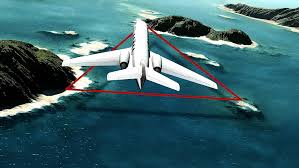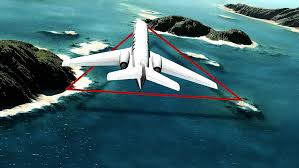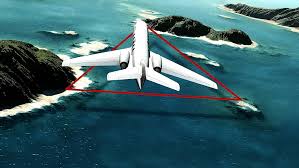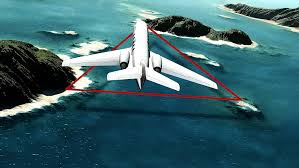When it comes to career options, people often consider conventional choices such as medicine, engineering, finance, or technology. However, the maritime industry offers a unique path that combines adventure, global exposure, and economic opportunities. Marine transportation is one such career path that plays a vital role in keeping international trade and commerce moving smoothly. Since over 80% of global trade is carried by sea, the demand for skilled professionals in this sector remains high. But the question remains: Is marine transportation a good career path?
In this blog, we will explore the world of marine transportation, its advantages and challenges, career opportunities, and whether it is the right fit for aspiring professionals.
What Is Marine Transportation?
Marine transportation refers to the movement of goods and passengers via ships, tankers, ferries, and other water vessels across seas, oceans, rivers, and canals. This industry forms the backbone of international trade, connecting producers and consumers from different parts of the globe.
It is not limited to cargo movement alone; it also covers passenger ships, cruise liners, and ferry services. Professionals in marine transportation are responsible for managing the navigation, logistics, operations, and maintenance of vessels.
Some common roles in this field include:
-
Deck Officers and Navigators – Responsible for steering and navigating ships safely.
-
Marine Engineers – Manage the technical and mechanical aspects of the vessel.
-
Logistics Managers – Ensure smooth operations of cargo movement.
-
Crew Members – Perform daily operational tasks on board.
-
Port and Terminal Managers – Oversee shipping operations at ports.
Why Marine Transportation Matters
Globalization and international trade heavily rely on marine transportation. Container ships, bulk carriers, oil tankers, and other vessels ensure that raw materials, manufactured goods, and energy resources reach their destinations efficiently. Without this industry, economies would struggle to function.
Moreover, marine transportation is one of the most cost-effective and environmentally efficient modes of moving large volumes of goods compared to road and air transport.
Advantages of a Career in Marine Transportation
If you are considering this field, here are some compelling reasons why it might be a good career path:
1. High Demand and Job Security
Since marine transportation is crucial for global trade, there is a constant need for professionals who can operate, manage, and maintain shipping operations. This makes the sector stable and less prone to job scarcity.
2. Attractive Salaries and Benefits
Marine professionals, especially those working on international vessels, often receive competitive salaries, tax-free income (in some countries), free accommodation, and food while onboard. Senior officers and engineers can earn significantly higher salaries compared to many land-based jobs.
3. Global Exposure
Working in marine transportation provides opportunities to travel across the world. Crew members and officers often get to visit multiple countries during their voyages, experiencing different cultures and lifestyles.
4. Career Growth Opportunities
The maritime industry offers a clear progression path. For example, a cadet can work their way up to become a captain or chief engineer with experience and training. Onshore positions in logistics, shipping companies, and port management are also available after sea service.
5. Sense of Adventure and Independence
Unlike desk jobs, marine transportation provides a unique lifestyle filled with challenges, adventure, and independence. For people who love the sea, ships, and global travel, it can be a very rewarding profession.
Challenges of a Career in Marine Transportation
Like any profession, marine transportation comes with its own set of difficulties:
1. Long Time Away from Home
Seafarers often spend months away from family and friends, which can be emotionally challenging. Modern communication helps, but it does not replace physical presence.
2. Demanding Work Environment
Working on a ship requires discipline, hard work, and adaptability. Crew members face unpredictable weather, strict safety regulations, and long working hours.
3. Health and Safety Risks
Maritime jobs can be risky due to rough seas, mechanical failures, or accidents. Although safety standards have improved significantly, risks cannot be completely eliminated.
4. Adjustment to Onshore Life
Many professionals find it challenging to adjust back to regular onshore jobs after years at sea. The lifestyle differences between onboard and land-based work can be significant.
Skills Needed in Marine Transportation
Success in marine transportation requires a combination of technical, practical, and personal skills. Some essential qualities include:
-
Strong problem-solving and decision-making abilities
-
Physical and mental resilience
-
Technical knowledge in navigation and engineering
-
Good communication and teamwork skills
-
Adaptability and discipline
Training and certifications, such as STCW (Standards of Training, Certification, and Watchkeeping for Seafarers), are mandatory for most maritime roles.
Is Marine Transportation a Good Career Path?
The answer depends on your interests, personality, and long-term goals. Marine transportation can be a highly rewarding career path for those who:
-
Enjoy traveling and adventure
-
Can adapt to long periods away from home
-
Are interested in technical or navigational work
-
Value job security and financial stability
-
Have the discipline to work in demanding environments
On the other hand, if you prefer a routine lifestyle, consistent presence with family, and traditional office work, then this field may not be ideal for you.
Future of Marine Transportation Careers
The future of this industry looks promising, with continuous growth in global trade and technological innovations. The rise of green shipping, automation, and digitalization is transforming the industry, creating new opportunities for skilled professionals. Careers in marine logistics, sustainable shipping practices, and smart port management are expected to grow in demand.
Final Thoughts
So, is marine transportation a good career path? For the right person, the answer is a definite yes. It offers global exposure, financial rewards, and a unique lifestyle that few careers can match. However, it also requires resilience, adaptability, and a willingness to face challenges.
If you are someone who dreams of the sea, enjoys adventure, and wants to be part of a critical industry that keeps the world connected, then marine transportation could very well be the career path you are looking for.



